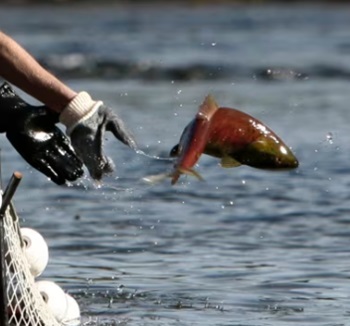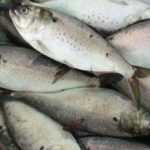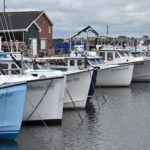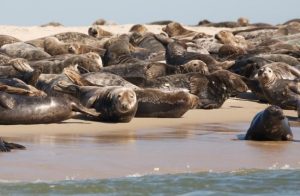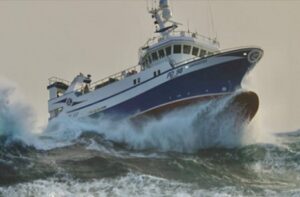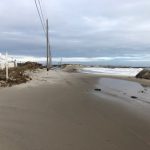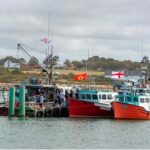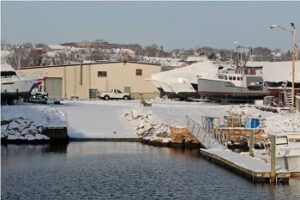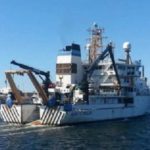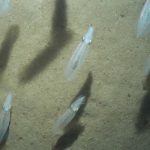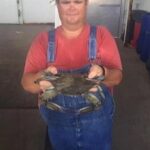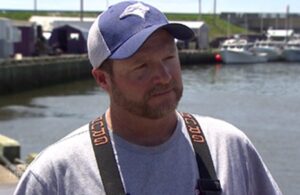Tag Archives: University of British Columbia
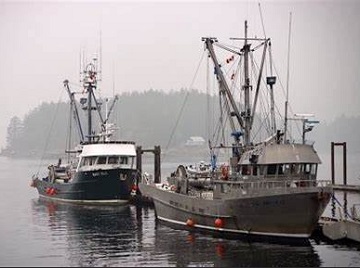
Fish fight over West Coast licences and quota resurfaces at federal committee
A parliamentary committee investigating whether corporations and foreign owners have a stranglehold on Canadian fisheries is experiencing a serious case of deja vu. Witnesses speaking about the dire straits faced by commercial fish harvesters and coastal communities on the West Coast are raising the same issues first presented to the Standing Committee of Fisheries and Oceans (FOPO) starting in 2018.Independent operators, First Nations and young fishers are being squeezed out by skyrocketing prices for commercial fishing licences and quota, a set share of the allowable catch, witnesses told the committee at ongoing meetings starting May 8. >click to read< 15:23
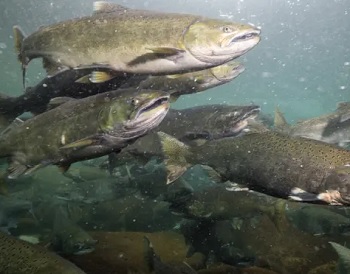
Canada ignored warnings of virus infecting farmed and wild salmon
Canada was warned in 2012 by its own scientists that a virus was infecting both farmed and wild salmon, but successive governments ignored the expert advice, saying for years that risks to salmon were low. Justin Trudeau’s government has said it will phase out open-pen industrial fish farms off the coast of British Columbia by 2025. But both his government and the previous Conservative government were in possession of a newly released report that linked large-scale farms and wild salmon to the highly contagious Piscine orthoreovirus (PRV). In 2012, biologists with the department of fisheries and oceans investigated the presence of the virus, which has been found in both farmed and wild salmon. but successive governments ignored the expert advice, saying for years that risks to salmon were low. >click to read< 11:48
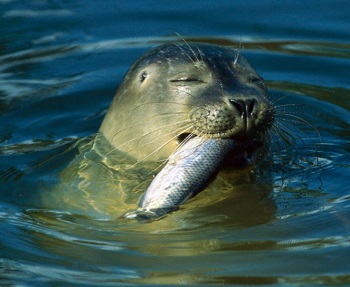
What Would a British Columbia Seal and Sea Lion Cull Actually Entail?
Cast an eye upon Canada’s Pacific coast and it shouldn’t take long to spot its most ubiquitous marine mammal, the harbor seal. At least 100,000 are thought to occupy the coves and nearshore waters along British Columbia’s coast. You may view seals with wonder, as evidence of a productive marine ecosystem on the doorstep of civilization. Or, just as easily, as a ravenous predator gobbling up the same fish populations sought by humans. Enter a divisive proposal to cull the seals and sea lions. Enough time has been spent studying the species’ impact on fish stocks, advocates of the cull say: it’s time to cut them back. >click to read< 11:42
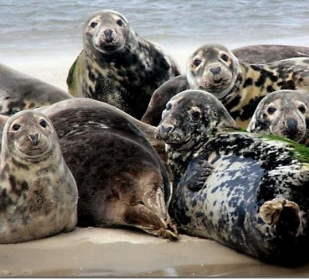
What lives, what dies? The role of science in the decision to cull seals to save cod
Atlantic cod on the Grand Banks of Newfoundland supported one of the world’s greatest fisheries for over three centuries. Yet this seemingly inexhaustible resource is in bad shape. Some stocks are now endangered and their survival could depend on removing a key predator, the grey seal. This raises some difficult questions: How do we determine the value of one species over another, and what is the role of science in this conundrum? My colleagues and I in the Fisheries Economics Research Unit at the University of British Columbia are fascinated by these questions. As an interdisciplinary group of economists, ecologists and social scientists, we commonly attribute values to animals in different ways. >click to read< 16:55
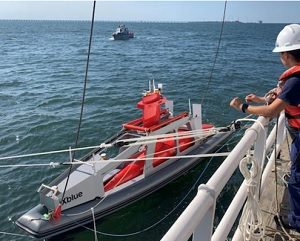
Scientists breathe easier as west coast ocean heat wave weakens
Nate Mantua of the National Oceanic and Atmospheric Administration said the “good news” is that the area of exceptionally warm water is substantially smaller now than it was earlier this year. And while the area about 1,500 kilometres offshore between Hawaii and Alaska is still seeing high temperatures by historical standards, it is “simply not nearly as large as it was and it is no longer strong in areas near the west coast,” he said. Scientists have been watching a marine heat wave that developed around June this year,,, >click to read< 15:01
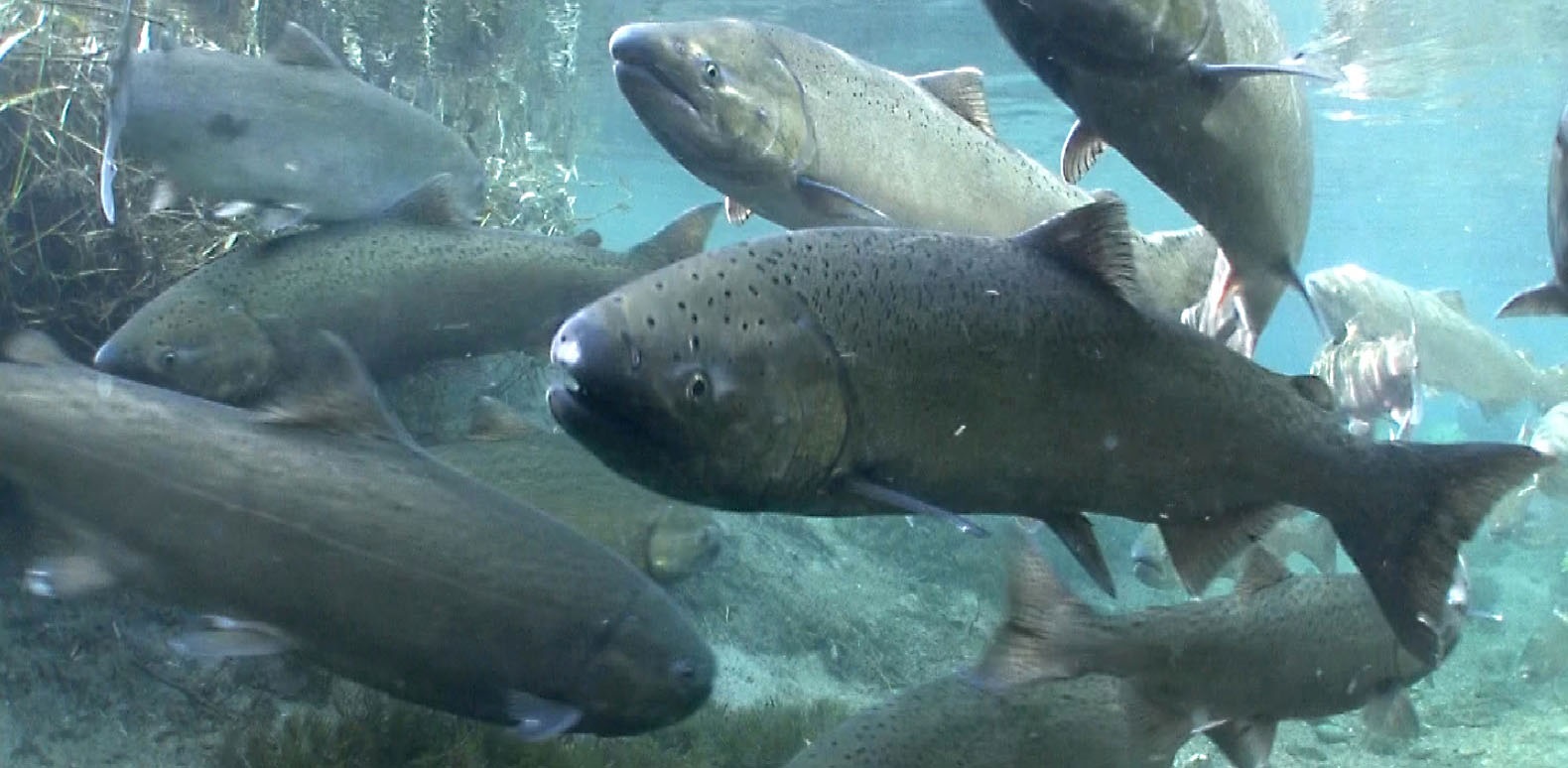
California chinook returns a ‘game-changer’ – California’s chinook may explain why Southern Resident Killer Whales haven’t shown up in BC
Last week, when southern resident killer whales failed to show up in B.C. coastal waters by the end of June, as they usually do, it caused some hand-wringing among whale watchers and Washington conservationists. But if the orcas are late showing up for dinner in B.C., it may be because they were still at the buffet in California, which is reported to be experiencing one of the best chinook returns in about a decade. “I think the California return was a game-changer this year,” >click to read< 13:24
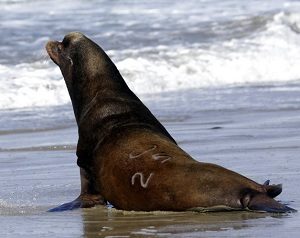
Scientists warn of ecosystem consequences for proposed B.C. seal hunt
A British Columbia group wants to revive the seal and sea lion hunt on the west coast, provoking a debate about the controversial practice and prompting scientists to warn of consequences for the ecosystem.,,, But Dr. Peter Ross of the Vancouver Aquarium says there’s no data to suggest a cull would help salmon species. “Personally and professionally, I don’t think it would make an ounce of difference,” he said. (a deep thinker!),,, Andrew Trites, who oversees the marine mammal research unit at the University of British Columbia, said perceptions about rising seal and sea lion populations are skewed. >click to read<09:43
University of British Columbia study – Insurance industry unknowingly supports illegal fishing
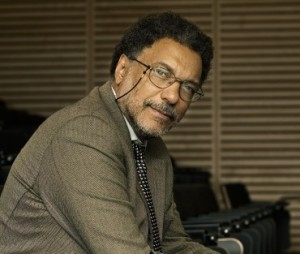 Many boats involved in illegal, unreported and unregulated (IUU) fishing are able to get insurance, suggesting that the insurance industry is inadvertently supporting illegal fishing, according to new Canadian research. But that means it may also be able to help curb that kind of activity, say researchers at the University of British Columbia. The most popular type of maritime insurance is called protection and indemnity insurance, and it’s required by law for many vessels larger than 1,000 gross tonnes. It protects vessel operators in case of third-party liability or pollution deemed to be caused by the vessel. The researchers went through lists of 480 confirmed or suspected illicit fishing boats, such as the European Commission’s Regional fisheries management organisation’s IUU list and Interpol’s Purple Notice lists. Among those, they found 67 vessels listed as insured clients of 17 different maritime insurers who posted lists of their clients online, the researchers reported in a recent article in the journal Frontiers in Ecology and the Environment. Read the rest here 11:50
Many boats involved in illegal, unreported and unregulated (IUU) fishing are able to get insurance, suggesting that the insurance industry is inadvertently supporting illegal fishing, according to new Canadian research. But that means it may also be able to help curb that kind of activity, say researchers at the University of British Columbia. The most popular type of maritime insurance is called protection and indemnity insurance, and it’s required by law for many vessels larger than 1,000 gross tonnes. It protects vessel operators in case of third-party liability or pollution deemed to be caused by the vessel. The researchers went through lists of 480 confirmed or suspected illicit fishing boats, such as the European Commission’s Regional fisheries management organisation’s IUU list and Interpol’s Purple Notice lists. Among those, they found 67 vessels listed as insured clients of 17 different maritime insurers who posted lists of their clients online, the researchers reported in a recent article in the journal Frontiers in Ecology and the Environment. Read the rest here 11:50
Misuse of the precautionary approach in fisheries management – A Conversation with Carl Walters
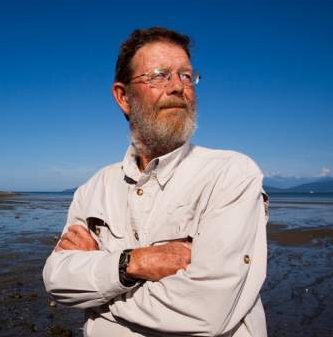 We spoke with Carl Walters of the University of British Columbia about the misuse of the precautionary approach by risk-averse scientists and conservation advocates. His concern arises from the application of the precautionary approach to Western Canadian salmon fisheries, which he believes has negatively impacted Canadian salmon fishermen and resulted in “virtually, an economic collapse.” He began by first differentiating between the precautionary principle and the precautionary approach, the former he claimed to be “a perfectly sensible statement that I think almost everyone would subscribe to about the need to avoid irreversible harm when possible…in the management of any system. There’s a different creature that has arisen in fisheries policy…called the precautionary approach to management” – this is the one that upsets him (00:35). Read the rest here Click here to listen 16:18
We spoke with Carl Walters of the University of British Columbia about the misuse of the precautionary approach by risk-averse scientists and conservation advocates. His concern arises from the application of the precautionary approach to Western Canadian salmon fisheries, which he believes has negatively impacted Canadian salmon fishermen and resulted in “virtually, an economic collapse.” He began by first differentiating between the precautionary principle and the precautionary approach, the former he claimed to be “a perfectly sensible statement that I think almost everyone would subscribe to about the need to avoid irreversible harm when possible…in the management of any system. There’s a different creature that has arisen in fisheries policy…called the precautionary approach to management” – this is the one that upsets him (00:35). Read the rest here Click here to listen 16:18
Turning Discarded Lobster Shells Into Batteries
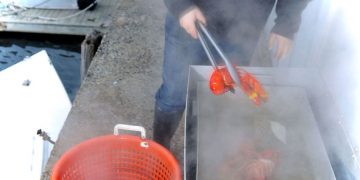 Mark MacLachlan, of the University of British Columbia in Vancouver, has found a new way to produce batteries: the discarded shells of shellfish. Specifically, by using chitin, the substance that gives certain animals their iridescence (think the luster of the interior of an oyster shell). As reported by Hakai Magazine, Chitin can already be used for a variety of purposes, both medical and industrial. It can be used as biodegradable surgical thread, meaning sutures eventually disappear on their own. It’s can also be used to form a version of biodegradable plastic. Read the rest here 11:16
Mark MacLachlan, of the University of British Columbia in Vancouver, has found a new way to produce batteries: the discarded shells of shellfish. Specifically, by using chitin, the substance that gives certain animals their iridescence (think the luster of the interior of an oyster shell). As reported by Hakai Magazine, Chitin can already be used for a variety of purposes, both medical and industrial. It can be used as biodegradable surgical thread, meaning sutures eventually disappear on their own. It’s can also be used to form a version of biodegradable plastic. Read the rest here 11:16
Seals blamed for drop in Strait of Georgia juvenile salmon stocks
 A bountiful population of harbour seals is a prime suspect in the decline of coho and chinook in the Strait of Georgia, according to a new study. The population of harbour seals has grown steadily with federal protection, from fewer than 5,000 in 1970 to about 40,000 in 2008 in the Strait of Georgia — a period that corresponds with marked declines in coho and chinook. “In the 1970s, you could take 60 to 70 per cent of the population sustainably every year and there’d still be plenty of fish coming back to spawn — and that just doesn’t happen any more,” Read the article here 19:47
A bountiful population of harbour seals is a prime suspect in the decline of coho and chinook in the Strait of Georgia, according to a new study. The population of harbour seals has grown steadily with federal protection, from fewer than 5,000 in 1970 to about 40,000 in 2008 in the Strait of Georgia — a period that corresponds with marked declines in coho and chinook. “In the 1970s, you could take 60 to 70 per cent of the population sustainably every year and there’d still be plenty of fish coming back to spawn — and that just doesn’t happen any more,” Read the article here 19:47
Ocean fish catches 50% higher than reported, study suggests
 Humans are scooping millions of tonnes more fish out of the oceans than official statistics show — about 50 per cent more, estimates a new Canadian study that sheds some light on the extent of the problem and on who’s catching all those extra fish. Statistics compiled by the Food and Agriculture Organization of the United Nations (FAO) and cited by the study show that global marine catches between 1950 and 2010 peaked in 1996 at 86 million tonnes before declining by around 0.38 million tonnes per year. But by scouring out and including around the world, the new study by Daniel Pauly and Dirk Zeller at the University of British Columbia and their 400 global collaborators,,, Read the article here 15:30
Humans are scooping millions of tonnes more fish out of the oceans than official statistics show — about 50 per cent more, estimates a new Canadian study that sheds some light on the extent of the problem and on who’s catching all those extra fish. Statistics compiled by the Food and Agriculture Organization of the United Nations (FAO) and cited by the study show that global marine catches between 1950 and 2010 peaked in 1996 at 86 million tonnes before declining by around 0.38 million tonnes per year. But by scouring out and including around the world, the new study by Daniel Pauly and Dirk Zeller at the University of British Columbia and their 400 global collaborators,,, Read the article here 15:30
From the UBC “think tank” – B.C. salmon prices set to skyrocket with climate change
 The report Out of Stock predicts that by 2050 there could be a 21 per cent decline in sockeye, a 10 per cent decline in chum, and a 15 per cent decline in sablefish. “This is a really tangible way for people to understand the impact of climate change,” says Rashid Sumaila, one of the study’s authors who has been working with the UBC’s fisheries research unit for over 20 years. Alrighty then! Read the rest here 10:40
The report Out of Stock predicts that by 2050 there could be a 21 per cent decline in sockeye, a 10 per cent decline in chum, and a 15 per cent decline in sablefish. “This is a really tangible way for people to understand the impact of climate change,” says Rashid Sumaila, one of the study’s authors who has been working with the UBC’s fisheries research unit for over 20 years. Alrighty then! Read the rest here 10:40
Salmon can adapt to warmer environment, study says
![]() With climate change heating up British Columbia’s rivers, there are growing concerns about the vulnerability of cold-water species such as salmon. But a shows salmon may have the ability to adapt to a warming world because Chinook that lay larger eggs produce offspring that have greater heat tolerance. Read more here 10:39
With climate change heating up British Columbia’s rivers, there are growing concerns about the vulnerability of cold-water species such as salmon. But a shows salmon may have the ability to adapt to a warming world because Chinook that lay larger eggs produce offspring that have greater heat tolerance. Read more here 10:39
Sweeping study aims to find why salmon stocks collapsed
![]() With almost $10-million in funding raised from private donors, corporations and non-profits, the Pacific Salmon Foundation has started a salmon research project unlike anything the government ever attempted. Launched on the 20th anniversary of the collapse of coho and chinook salmon stocks in the Strait of Georgia,, Read more here 08:28
With almost $10-million in funding raised from private donors, corporations and non-profits, the Pacific Salmon Foundation has started a salmon research project unlike anything the government ever attempted. Launched on the 20th anniversary of the collapse of coho and chinook salmon stocks in the Strait of Georgia,, Read more here 08:28
Nine steps to save waterways and fisheries identified by researchers
The key to clean water and sustainable fisheries is to follow nine guiding principles of water management, says a team of Canadian biologists. Read [email protected] 10:40
Sea life relocating fast in response to climate change – Extinctions possible as predators move into new areas
 Many fish and plankton are relocating towards the North and South poles at an astonishing rate of hundreds of kilometres per decade in response to climate change, a new study has found. That is shaking up ecosystems and forcing the fishing industry to adjust. more@cbcnews
Many fish and plankton are relocating towards the North and South poles at an astonishing rate of hundreds of kilometres per decade in response to climate change, a new study has found. That is shaking up ecosystems and forcing the fishing industry to adjust. more@cbcnews
UBC study finds fish species shifting to the north because of climate change
 Climate change has been forcing fish to head north in search of cooler seas for nearly four decades, according to newly published research. In paper published Wednesday in the journal Nature, a University of British Columbia scientist said global fisheries are being increasingly dominated by warm-water species, which will cause major changes in the industry. “We expect to see a change in the fishery’s catch,” said William Cheung. “The fishing industry will have to adapt to change in the new species.” continued
Climate change has been forcing fish to head north in search of cooler seas for nearly four decades, according to newly published research. In paper published Wednesday in the journal Nature, a University of British Columbia scientist said global fisheries are being increasingly dominated by warm-water species, which will cause major changes in the industry. “We expect to see a change in the fishery’s catch,” said William Cheung. “The fishing industry will have to adapt to change in the new species.” continued






